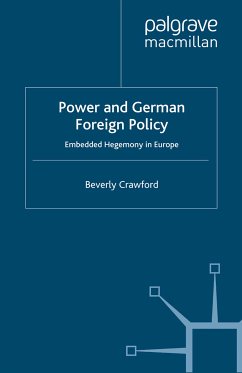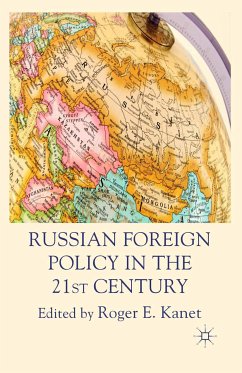
Power and German Foreign Policy (eBook, PDF)
Embedded Hegemony in Europe
Versandkostenfrei!
Sofort per Download lieferbar
72,95 €
inkl. MwSt.
Weitere Ausgaben:

PAYBACK Punkte
36 °P sammeln!
What will German foreign policy look like in 2015? This book speculates by making a provocative argument: what drives German foreign policy is its power position in Europe and on the international stage. Crawford examines Germany's manoeuvres in the Balkans, its role in EMU, and its leadership in curbing Europe's proliferation of WMD technology.
Dieser Download kann aus rechtlichen Gründen nur mit Rechnungsadresse in A, B, BG, CY, CZ, D, DK, EW, E, FIN, F, GR, HR, H, IRL, I, LT, L, LR, M, NL, PL, P, R, S, SLO, SK ausgeliefert werden.












